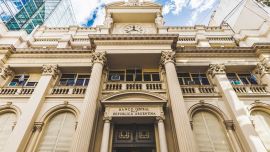Amid sharp criticism from the opposition, President Alberto Fernández unveiled his long-awaited judicial reform package on Wednesday at the Casa Rosada, declaring that the move would help Argentina’s justice system regain “credibility.”
Detailing a list of slated reforms in a televised speech, the Peronist leader said he would seek to increase the number of federal courts in operation, dilute the power of those already in existence, speed up trials and ensure the Judiciary remains independent from the Executive.
Fernández also confirmed the creation of an advisory commission made up of 11 legal experts, who will assess what additional changes might be needed to the justice system – a move most analysts see as the first step in expanding the number of justices that sit on the Supreme Court.
The president would also seek to implement the so-called ‘accusatorial’ (or adversarial) legal system, a move already approved by lawmakers that was blocked by former president Mauricio Macri.
“I only seek to have the Republic that everyone declares, but that some have humiliated,” said Fernández, a professor who has taught criminal law at the University of Buenos Aires for decades, even to this day.
He was joined by several government and judicial officials, as well as Supreme Court Justice Elena de Nolasco. A number of prominent figures were noticeably absent, with not a single member of the opposition present.
The Frente de Todos leader said he wanted to “better organise” Argentina’s much-criticised justice system and “overcome the crises that affect [its] credibility.”
Opposition lawmakers, however, had rejected the proposed changes even before the announcement, alleging they are an attempt to promote “impunity” for corrupt officials and manipulate the court system.
"There is no possibility of serious judicial reform in this difficult social and economic context,” said Maxi Ferraro, the president of the Civic Coalition ARI, one of three parties that make up the Juntos por el Cambio opposition coalition. “Much less when a plan of impunity is sought and to break the actions of the independence of justice."
UCR Radical lawmaker Mario Negri, the head of the coalition's bloc in the lower house Chamber of Deputies, said the opposition would "analyse the judicial reform with the utmost rigour," adding that they would be "extremely firm in defending the independence of the Judiciary."
Opposition supporters also expressed their dismay on Wednesday night in a cacerolazo pot-banging protest in Buenos Aires City and other cities nationwide. The call to protest, which spread quickly on social media using the hashtag ‘#1ANoALaReformaJudicial,’ was not officially endorsed by the government, though some lawmakers expressed support.
The government rejects claims of improper motivation. In comments to Reuters, Justice Minister Marcela Losardo said that the move sought to “end the concentration of federal justice.”
“We have heard the claims that this reform suits the government or the vice-president’s bid for impunity. Nothing is further from reality – those currently in the system will continue to have their cases tried by the same judges,” said Losardo.
Proposal
Argentina’s Judiciary has long been accused of pro-government bias, with critics charging that the courts tend to protect those in power and prosecute those in opposition.
Fernández, who took office last December, vowed to overhaul the justice system in his inauguration speech. Those plans were delayed, in part, due to the coronavirus pandemic.
Government officials say a bill has already been drafted that would join 12 existing criminal courts with 11 corporate law courts, while adding 23 more to create a federal criminal justice system based in Buenos Aires. That would dilute the power of the famous Comodoro Py federal courthouse and see the number of Argentina's federal courts raised overall from 12 to 46.
The bill also proposes the unification of appeal chambers and the creation of new oral trial courts, prosecutors and watchdogs.
The Magistrates’ Council – the body which judges judges, so to speak – could also be up for reform.
New guidelines for judges would be introduced, while Buenos Aires City could be granted the ability to investigate and judge all non-federal crimes committed within the capital's borders.
No ongoing trials would be altered and they will remain under the jurisdiction of the judges currently in charge, vowed Fernández
The legislation will be sent to Congress next week, they added. It will have to pass through both houses of Congress and it will likely face a fight in the lower house. The ruling Frente de Todos coalition holds a majority in the Senate but not in the Chamber of Deputies.
Criticism
In his speech on Wednesday, the president criticised the behaviour of the Judiciary during his predecessor’s time in office. During the 2015-2019 Mauricio Macri administration, a number of cases against ex-government officials were opened, most notably a string of corruption investigations involving former president and current Vice-President Cristina Fernández de Kirchner and other Kirchnerite figures.
Macri’s four years in office "were marked by measures that affected the rules of impartiality, which must govern judicial action in a state of law," said Fernández.
As examples, the president cited how his predecessor had suspended, by decree, the implementation of a federal penal code approved by lawmakers during Fernández de Kirchner’s time in office (2007-2015) and noted that the AFI federal intelligence agency had been allowed to manage a secret slush fund with no oversight on the funds. He said the agency was under “a cloud of suspicion” – in recent months, revelations of illegal espionage carried out by AFI agents during the Macri era have emerged in the press, with those claims now under investigation by the courts.
"As the days went by, judicial transparency was lost," said Fernández. "Procedural arbitrariness was gaining ground at the expense of the most elementary norms that guarantee due process."
He went on to slam the use of "preventive imprisonment,” which he said violated the principle of being innocent before proven guilty. A number of Kirchnerite figures were remanded in custody after being arrested and charged, rather than being bailed.
‘Persecution’
Without naming his vice-president specifically, the Peronist leader alluded to what Fernández de Kirchner has described as the "judicial persecution" facing her. She too has faced pre-trial arrest warrants issued in her name, though parliamentary privileges have prevented her being put behind bars.
In a noticeable moment, Fernández deployed a particularly emotive phrase in Argentine discourse – “Nunca más” – to vow that political persecution would no longer be a part of his reformed justice system.
"Let's say never again to a policy that judicialises [sic] dissent to eliminate the adversary," he declared.
Opposition critics say the proposed changes would allow the government to do just that, saying that proof of their intentions can be seen in the fact that Carlos Beraldi, one of Fernández de Kirchner's lawyers, is to sit on the reform committee.
Government officials have said that claim is absurd, citing Beraldi’s record and his renown as reason for his inclusion.
– TIMES/PERFIL/NA/AFP
























Comments